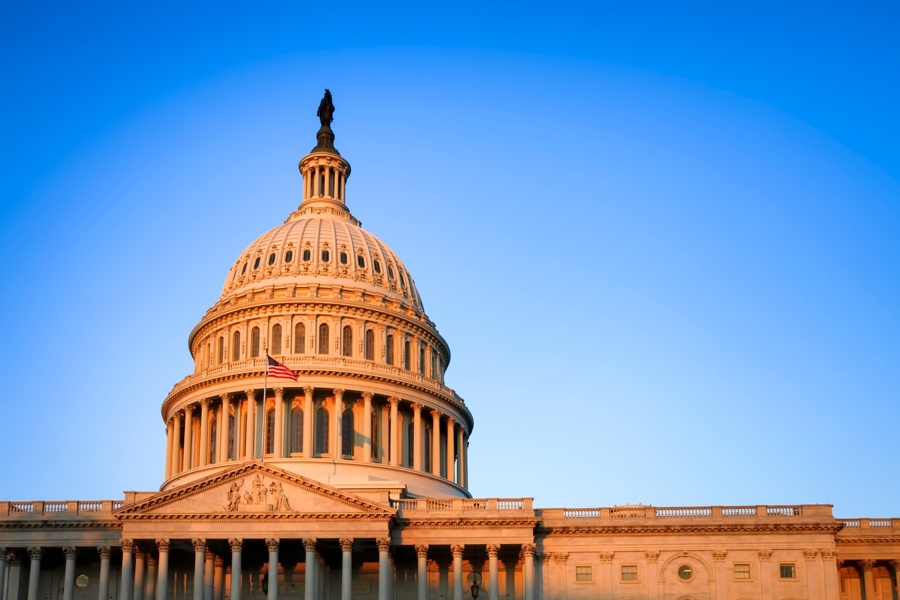

A recently published list of priorities related to ESG in investing hints at the long game the Republican party is playing in attempting to dismantle it.
Last Friday, the House Committee on Financial Services’ ESG working group issued a memo outlining its targets, focusing heavily on proxy voting, the Securities and Exchange Commission and big asset managers. That list followed a series of hearings on environmental, social and governance investing over the past two months by the House Committee on Oversight and Accountability that starkly showed the political divide and differing interpretation of facts on the subject.
The key priorities the Republican working group cited included reforming the proxy voting system, increasing oversight of large asset managers, requiring more disclosures from ESG ratings providers and investigating federal agencies such as the SEC over climate policy.
One consideration is prohibiting big investors from automatically casting votes in line with proxy advisor firms’ recommendations.
“By removing the robo-voting mechanism, institutional investors will be compelled to critically evaluate proxy advisory firm recommendations before casting their votes,” the group wrote in the memo. “This shift will allow for greater due diligence, thereby protecting the economic interests of retail investors.”
The group also seeks to require proxy advisors to compile annual reports that would detail how clients cast votes on shareholder proposals, as well as provide “an explanation of how firms reconcile their votes with their fiduciary duty to act in the best economic interest of shareholders.”
Shareholder resolutions filed at public companies are nonbinding, although their results can influence corporate boards to take action, sometimes without majority support in proxy votes.
One thing that congressional Republicans have taken issue with is the increase in volume of shareholder resolutions filed at public companies. In the Biden administration, the SEC changed its stance on the ability for investors to bring proposals, doing so by responding via no-action letters to public companies that they would not be immune from regulatory action if they exclude some shareholder resolutions from proxy ballots. That led to more resolutions being filed and fewer instances of companies fighting to keep those measures from going to votes, House Republicans noted.
“Across the nation, boardrooms are being held hostage by those who push policies that will lower returns for Americans trying to build a brighter and more financially secure future,” Bill Huizenga, chair of the House Oversight and Investigations Subcommittee, said in an announcement. “House Republicans will stand up, defend the free market, and the ability for Americans to make their own financial decisions as they see fit.”
The group also took aim at proposed rules from the SEC that would require climate-related disclosures from public companies, claiming that those would undermine the regulator’s materiality standard and exceed its rulemaking authority.
Despite the energy and focus the Republican party has devoted this year to ESG, its list of priorities likely doesn't have much chance politically in the near future.
“My reaction is that it’s largely performative, because the House and Senate are not going to enact any of these things, at least as currently constituted,” said Joshua Lichtenstein, partner at Ropes & Gray.
But Lichtenstein said the memo does reflect the intentions of Republican leaders, including those in numerous states that have taken regulatory or legislative stances against ESG factors in investing. The difference in this case is that while state efforts have focused on assets in public pensions, the House memo emphasizes retail investors, he noted.
“This push about protection of individual investors could signal more movement along that front, which would really amount to more substantive regulation of wirehouses, broker-dealers and financial advisors operating in [those] states,” he said. And that also hints at wider potential fights over regulating financial services versus preemption by the SEC, Lichtenstein added.
Along with the memo issued last week, House Reps. Andy Barr, R-Ken., and Rick Allen, R-Ga., reintroduced a bill that effectively would overturn the Department of Labor’s recent rule covering ESG in retirement plans.
Unlike legislation that passed in the House and Senate earlier this year that was vetoed by President Joe Biden, the bill would change statutory language rather than relying on the Congressional Review Act to defeat the DOL rule, Lichtenstein noted.
The bill, which would require plan fiduciaries to consider only “pecuniary” factors in selecting investments, stands virtually no chance of passage, he said.
However, it, like last week’s memo, demonstrates a fixation on ESG that shows the direction the Republican party is headed, he said. Even while the DOL’s new rule was drafted in language that closely resembles one finalized in the Trump era, allowing plans to consider ESG factors but not requiring them to, many of the facts about the rule have been glazed over or tossed, he said.
If the Democrats lose the White House, the next Republican to win it would almost certain direct the DOL to remake the rule, Lichenstein said.
“The rhetoric and conversations around the Biden rule have been so distortionary and dishonest … that it would be politically toxic for a Republican [president] to leave the Biden rule in place,” he said.

Raymond James also lured another ex-Edward Jones advisor in South Carolina, while LPL welcomed a mother-and-son team from Edward Jones and Thrivent.

MyVest and Vestmark have also unveiled strategic partnerships aimed at helping advisors and RIAs bring personalization to more clients.

Wealth management unit sees inflows of $23 billion.

Deal will give US investment bank a foothold in lucrative European market.

New report examines the impact that the initiative has had on philanthropy.
Orion's Tom Wilson on delivering coordinated, high-touch service in a world where returns alone no longer set you apart.
Barely a decade old, registered index-linked annuities have quickly surged in popularity, thanks to their unique blend of protection and growth potential—an appealing option for investors looking to chart a steadier course through today's choppy market waters, says Myles Lambert, Brighthouse Financial.
